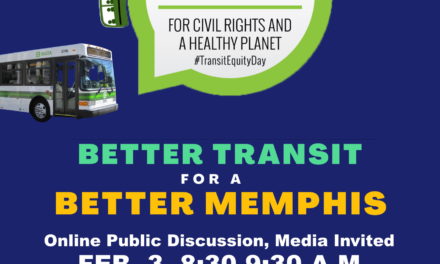It’s been a long time since we’ve knocked around in one of those big, spooky, abandoned buildings that captivated us as kids.
Today, we visited its virtual version – The Pyramid.
It exudes the same uncared for attitude and the same feeling of those old buildings from our youth – the ones that felt like someone just slammed the door and walked away.
The digital version of The Pyramid has much the same feeling. Everyone just filed out of the building, turned off the lights but forgot to pull the plug on the website.
Tripping
It just keeps telling the world about “one of the world’s most uniquely designed structures on earth.” We’re not sure why its design is so unique, since pyramids have been standing in the Egyptian desert for millennia, but no matter. In the virtual ghost town that is the pyramid-shaped building on our riverfront, we’re told about the “luxury suites,” the seating capacity, the Pyramid Gallery of Stars, the posh backstage accommodations and a state-of-the-art scoreboard.
Of course, we had been lulled into believing that these actually were cutting edge and state-of-the-art until FedEx Forum was built. Suddenly, we understood what a first-class arena really looked like.
But you’d never know that on-line. The Pyramid website even lists a phone number (don’t waste your time dialing it) and an email address for information. We obliged by sending an email, but we’re still waiting for a reply. Perhaps, somewhere, in the bowels of the abandoned arena, there’s a computer voice reverberating, “You’ve got mail.”
There’s even information about tours, and a map to get you there. All of this conjures up images of vacationers driving from the heartland to see the world’s largest pyramid and like the Griswold family at Walley World, they pull into the empty parking lot and closed building.
Doom And Gloom
In case you’re keeping score, The Pyramid will have been closed four years this September, so perhaps soon, someone will turn off the website.
It’s an ignoble end that’s perhaps to close to poetic justice for a building that never lived up to its hyperbole. Then again, perhaps, this is the only ending that really makes sense.
From its beginning, The Pyramid was the Tomb of Doom, but not just for opponents facing the Tigers on the basketball court.
In addition to the rigger who fell to his death in the building, the other ghosts are from the big plans that all met their deaths.
The Hard Rock Café on the south side of The Pyramid never got past the wishing stage, and the space eventually became a place to store extra chairs and equipment.
The Memphis Music Experience on the north side had several deadly incarnations, some boasting of holograms and The Beatles’ famous Cavern Club.
The music attraction was to be adjacent to the inclinators (which were actually purchased) inching up and down the northwest spine of the building to the apex, where visitors could enjoy exciting exhibits about Memphis music legends, or listen to the 24-hour ham radio playing Memphis music, or eat at the restaurant. It pretty much depended on which day you asked about it.
Not A Ghost Of A Chance
Rakapolis, a gaudy mix of music and Egyptology (as well as deadly mix of Mud Island and The Pyramid) made too little sense, and regrettably cost Mud Island a truly fine, $1 million children’s playground that was bulldozed and pushed over the side of the river bank.
The Dick Clark Hall of Fame was dangled as an option, and despite the world’s oldest teenager’s feigned excitement, it was all about money and died a pauper.
The Wonders: The Memphis International Cultural Series bit the dust after moving from the Memphis Convention Center to the lessened visibility of the north side of The Pyramid and died after 18 years of high-profile exhibits. (Its old website, www.wonders.org, is strange in its own way.)
Island Earth offered digital attractions and environmental ethos, it had the money and for reasons as unknown today as they were then, Memphis Mayor Willie W. Herenton pulled the plug on what would have been ahead of the times.
Saddest of all, The Pyramid holds the ghosts of big promises for The Pinch District. In the end, the promise of a 365 days a year attraction did nothing to revitalize the district, mainly because it obliterated the buildings it was intended to revitalize. The quick buck was in parking lots, which remain today as a sad commentary on misplaced priorities.
Problem After Problem
As we’ve said before, from the beginning, The Pyramid was the physical embodiment of Memphis’ feelings of unworthiness. We didn’t deserve a first-class arena; we had to chase one promised to us for $39 million (“complete with the balloons at the opening”). Even when the price tag rose to a little more than $60 million, it was still an ill-conceived and poorly designed and built project.
The dismal acoustics essentially blacked out the building for 12-18 months while they were fixed. The joke at the time was that at The Pyramid, it was always happy hour, because every concert was a two-to-one bargain. After all, you could hear every note twice – once when it was played, and a couple of seconds later when you heard it again.
Then there was the design flaw with the seating. In an age of increasing technology, The Pyramid’s floor seating was essentially the kind of pull-out seating used for old fairgrounds arenas. There was the luxury suite problem – how to sell them as exclusive when they were on the main floor with the concession stands and all the visitors that were wandering in.
There were the too narrow seats that resulted from the increase of the capacity by 2,500 to get the deciding vote on the Shelby County Board of Commissioners. You couldn’t wedge in more seats without reducing the seat width to something about as uncomfortable as Orpheum Theater seating.
There were the upper decks with the death-defying angle of the stairs, and if you thought you were getting a great deal with your tickets on the first two rows, you had to look through or around metal safety bars. On opening night, a pregnant woman fell in the upper deck, losing her baby and convincing officials that they really could splurge and put in safety lighting to show where the steps were.
The List Goes One
There was the inadequate sound and lighting systems, which resulted in a few seasons of muddied announcements and less-than-dramatic University of Memphis basketball team introductions. It wasn’t practical to turn out the lights in the same way they were done at the Mid-South Coliseum and like they are done now at FedEx Forum, because it took too long for them to recycle back up.
The building had no special entrance for handicapped visitors, because they were expected to find a way to climb the steep, inclined ramps to the doors on the north and south sides. When a manager of The Pyramid could not maneuver a wheelchair to the top of the ramp, the door on the south side was cut into the side of The Pyramid so people in wheelchairs could go down, not up.
And the list goes on and on.
We’re not sure what this all means for the now inevitable use of the building as a Bass Pro Shops megastore. Maybe the store sells enough rabbit feet to avoid the curse of the building, or maybe in the end, this big idea is destined to join all the others.
The Test
Time will tell.
In the meantime, we can find solace in the fact that the name of our pointy-headed arena has found its way into the annals of arena history.
Today, new arenas conduct The Pyramid test. That’s when in preparation for the grand opening, all the toilets are flushed at the same time to make sure they don’t overflow, something that did indeed happen on opening night at our new arena on November 9, 1991. With The Judds on stage, the lift station refused to handle all the waste water going out of The Pyramid as thousands of beer-drinking, county-and-western fans relieved themselves. Instead of going down, the water and whatever was in it went up and out, slowly moving out onto the main floor of the new arena.
It’s hard now not to see it for what it was – an omen.




